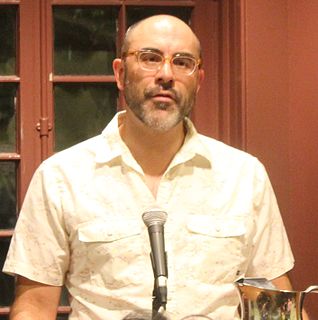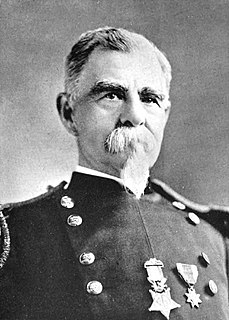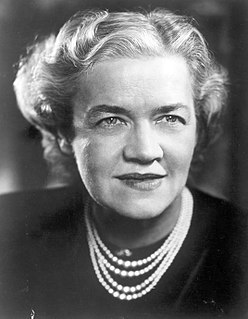Top 1135 Bitterness And Resentment Quotes & Sayings - Page 18
Explore popular Bitterness And Resentment quotes.
Last updated on November 20, 2024.
In the event of a violent revolution, we would be sorely outnumbered. And when it was all over, the Negro would face the same unchanged conditions, the same squalor and deprivation-the only difference being that his bitterness would be even more intense, his disenchantment even more abject. Thus, in purely practical as well as moral terms, the American Negro has no rational alternative to nonviolence.
I find along with many virtues in my countrymen there is a jealousy, a soreness, and readiness to take offence, as if they were the most helpless and impotent of mankind, and yet a violence... and a boistrousness in their resentment, as if they had been puffed up with the highest prosperity and power. they will not only be served, but it must also be in their own way and on their own principles and even in words and language that they liked... which renders it very difficult for a plain unguarded man as I am to have anything to do with them or their affairs.
The murders of Newtown are a warning to me - and you. Not a warning to see our schools as defenseless, but to see our souls as depraved. To see our need for a Savior. To humble ourselves in repentance for the God-diminishing bitterness of our hearts. To turn to Christ in desperate need, and to treasure his forgiveness, his transforming, and his friendship.
I am a Christian because of that moment on the cross when Jesus, drinking the very dregs of human bitterness, cries out, My God, my God, why hast thou forsaken me? (I know, I know: he was quoting the Psalms, and who quotes a poem when being tortured? The words aren’t the point. The point is he felt human destitution to its absolute degree; the point is that God is with us, not beyond us, in suffering.)
Society ... is nothing more than the war of a thousand petty opposed interests, an eternal strife of all the vanities, which, turn in turn wounded and humiliated one by the other, intercross, come into collision, and on the morrow expiate the triumph of the eve in the bitterness of defeat. To live alone, to remain unjostled in this miserable struggle, where for a moment one draws the eyes of the spectators, to be crushed a moment later -- this is what is called being a nonentity, having no existence. Poor humanity!
Of ill-temper there are three kinds: irascibility, bitterness, sullenness. It belongs to the ill-tempered man to be unable to bear either small slights or defeats but to be given to retaliation and revenge, and easily moved to anger by any chance deed or word. Ill-temper is accompanied by excitability of character, instability, bitter speech, and liability to take offence at trifles and to feel these feelings quickly and on slight occasions.
As we forge deeper into this issue of forgiveness, we must be prepared to open up and discuss things that bother us before they escalate to a crisis level. We must examine our struggles with forgiveness in which there are not overt offenses or blatant betrayals. I'm convinced that seeds of resentment take root in the silent frustrations that never get discussed. Other people cannot read our minds--or our palms!--and that is why we have tongues to speak.
Your desintation is a life of meaning, fulfillment, creativity and joy. A life free of fears, obsessions, compulsions, and addictions, without the insecurities others activates so easily and the torments they create in you. WHen you resist your [life] experiences, you resist the guidance they offer. Anger, resentment jealousy and fear each show you in their own way what you need to change inside yourself in order to reach your destination. Are you listening?
As you consider your own life, are there things that you need to change? Have you made mistakes that still need to be corrected? If you are suffering from feelings of guilt or remorse, bitterness or anger, or loss of faith, I invite you to seek relief. Repent and forsake your sins. Then, in prayer, ask God for forgiveness. Seek forgiveness from those you have wronged. Forgive those who have wronged you. Forgive yourself.
From the tower battlements, Dustfinger looked down on a lake as black as night, where the reflection of the castle swam in a sea of stars. The wind passing over his unscarred face was cold from the snow of the surrounding mountains, and Dustfinger relished life as if he were tasting it for the first time. The longing it brought, and the desire. All the bitterness, all the sweetness, even if it was only for a while, never for more than a while, everything gained and lost, lost and found again.
The larch... is not only preserved from decay and the worm by the great bitterness of its sap, but also it cannot be kindled with fire nor ignite of itself, unless like stone in a limekiln it is burned with other wood... This is because there is a very small proportion of the elements of fire and air in its composition, which is a dense and solid mass of moisture and the earthy, so that it has no open pores through which fire can find its way... Further, its weight will not let it float in water.
Human nature itself is evermore an advocate for liberty. There is also in human nature a resentment of injury, and indignation against wrong. A love of truth and a veneration of virtue. These amiable passions, are the "latent spark" . . . If the people are capable of understanding, seeing and feeling the differences between true and false, right and wrong, virtue and vice, to what better principle can the friends of mankind apply than to the sense of this difference?
Surely it is a matter of joy, that your faith in Jesus has been preserved; the Comforter that should relieve you is not far from you. But as you are a Christian, in the name of that Saviour, who was filled with bitterness and made druken with wormwood, I conjre you to have recourse in frequent prayer to 'his God and your God,' the God of mercies, and father of all comfort. Your poor father is, I hope, almost senseless of the calamity; the unconscious instrument of Divine Providence knows it not, and your mother is in heaven.
Feelings like disappointment, embarrassment, irritation, resentment, anger, jealousy, and fear, instead of being bad news, are actually very clear moments that teach us where it is that we’re holding back. They teach us to perk up and lean in when we feel we’d rather collapse and back away. They’re like messengers that show us, with terrifying clarity, exactly where we’re stuck. This very moment is the perfect teacher, and, lucky for us, it’s with us wherever we are.
When you sailors see the haven before you, though you were mightily troubled before you could see any land, yet when you come near the shore and can see a certain land-mark, that contents you greatly. A godly man, in the midst of the waves and storms that he meets with, can see the glory of heaven before him and so contents himself. One drop of the sweetness of heaven is enough to take away all the sourness and bitterness of all the afflictions in the world.
What folly made young people, even those in middle age, think they were immortal? How much better, their lives, if they could remember the end. Carrying your death with you every day would make it hard to waste time on unkindness and anger and bitterness, on anything petty. That was the secret: remembering your dying time, in order to keep the stupid and the ugly out of your living time.
What do you believe? I believe that the last and the first suffer equally. Pari passu. Equally? It is not alone in the dark of death that all souls are one soul. Of what would you repent? Nothing. Nothing? One thing. I spoke with bitterness about my life and I said that I would take my own part against the slander of oblivion and against the monstrous facelessness of it and that I would stand a stone in the very void where all would read my name. Of that vanity I recant all.
To one degree or another, everybody is connected to the Mystery, and everybody secretly yearns to expand the connection. That requires expanding the soul. These things can enlarge the soul: laughter, danger, imagination, meditation, wild nature, passion, compassion, psychedelics, beauty, iconoclasm, and driving around in the rain with the top down. These things can diminish it: fear, bitterness, blandness, trendiness, egotism, violence, corruption, ignorance, grasping, shining, and eating ketchup on cottage cheese.
Not only our eternal salvation depends upon our willingness and capacity to forgive wrongs committed against us. Our joy and satisfaction in this life, and our true freedom, depend upon our doing so. When Christ bade us turn the other cheek, walk the second mile, give our cloak to him who takes our coat, was it to be chiefly out of consideration for the bully, the brute, the thief? Or was it to relieve the one aggrieved of the destructive burden that resentment and anger lay upon us?
You know, I have never seen the level of anger and frustration and resentment and even disgust among millions of Americans toward the media. And I think there are a lot of self-inflicted wounds here, big mistakes that are not learned from, but also a lot of it the byproduct of a campaign in which the press appeared to be out of touch with the frustration of the many millions of Americans who helped put Donald Trump into the White House and just the way we botched it.
The Forsytes were resentful of something, not individually, but as a family; this resentment expressed itself in an added perfection of raiment, an exuberance of family cordiality, an exaggeration of family importance, and the sniff. Danger so indispensable in bringing out the fundamental quality of any society, group, or individual was what the Forsytes scented; the premonition of danger put a burnish on their armour. For the first time, as a family, they appeared to have an instinct of being in contact, with some strange and unsafe thing.
Isn't it funny how the memories you cherish before a breakup can become your worst enemies afterwards? The thoughts you loved to think about, the memories you wanted to hold up to the light and view from every angle-it suddenly seems a lot safer to lock them in a box, far from the light of day and throw away the key. It's not an act of bitterness. It's an act if self-preservation. It's not always a bad idea to stay behind the window and look out at life instead, is it?
As you see, I bear some resentment and some scars from the years of anti-genre bigotry. My own fiction, which moves freely around among realism, magical realism, science fiction, fantasy of various kinds, historical fiction, young adult fiction, parable, and other subgenres, to the point where much of it is ungenrifiable, all got shoved into the Sci Fi wastebasket or labeled as kiddilit - subliterature.
There are some women in whom conscience is so strongly developed that it leaves little room for anything else. Love is scarcely felt before duty rushes to encase it, anger impossible because one must always be calm and see both sides, pity evaporates in expedients, even grief is felt as a sort of bruised sense of injury, a resentment that one should have grief forced upon one when one has always acted for the best.
But who, in the Western world, has not been deranged by a toxic cocktail of dissatisfaction, restlessness, desire and resentment? Who has not yearned to be younger, richer, more talented, more respected, more celebrated, and, above all, more sexually attractive? Who has not felt entitled to more and aggrieved when more was not forthcoming? It is possible that a starving African farmer has less sense of injustice than a middle-aged Western male who has never been fellated.
My sister stood up, trembling, and I must admit that I expected her familiar sneer to have taken its usual place on her face. But all I could find there was unhappiness and fear. Fear of my reaction, perhaps. But when a person has lived a life like hers, a life of promiscuity, rootlessness, and substance abuse, resentment and fear tend to replace all reasonable and proper emotions, and the world becomes your enemy.
Deep listening is the kind of listening that can help relieve the suffering of another person. You can call it compassionate listening. You listen with only one purpose: to help him or her to empty his heart. Even if he says things that are full of wrong perceptions, full of bitterness, you are still capable of continuing to listen with compassion. Because you know that listening like that, you give that person a chance to suffer less.
You may be at a crossroads in your life. You may have issues to deal with; people you need to forgive. You can go one of the two ways. You can ignore what you now know to be true and keep burying that bitterness in your life, pushing it deeper and allowing it to poison and contaminate you and those around you. Or you can make a much better choice by getting it out in the open and asking God to help you to totally forgive and let it all go.
In struggling for human dignity the oppressed people of the world must not allow themselves to become bitter or indulge in hate campaigns. To retaliate with hate and bitterness would do nothing but intensify the hate in the world. Along the way of life, someone must have sense enough and morality enough to cut off the chain of hate. This can be done only by projecting the ethics of love to the center of our lives.
Lose/Win people bury a lot of feelings. And unexpressed feelings come forth later in uglier ways. Psychosomatic illnesses often are the reincarnation of cumulative resentment, deep disappointment and disillusionment repressed by the Lose/Win mentality. Disproportionate rage or anger, overreaction to minor provocation, and cynicism are other embodiments of suppressed emotion. People who are constantly repressing, not transcending feelings toward a higher meaning find that it affects the quality of their relationships with others.
These most crafty enemies [the devils] have filled and inebriated with gall and bitterness the Church, the spouse of the Immaculate Lamb, and have laid impious hands on Her most sacred possessions. In the Holy Place itself, where has been set up the See of the most holy Peter and the Chair of Truth for the light of the world, they have raised the throne of their abominable impiety, with the iniquitous design that when the Pastor has been struck, the sheep may be scattered.
He could not forgive her, but he could not be unfeeling. Though condemning her for the past, and considering it with high and unjust resentment, though perfectly careless of her, and though becoming attached to another, still he could not see her suffer, without the desire of giving her relief. It was a remainder of former sentiment; it was an impulse of pure, though unacknowledged friendship; it was a proof of his own warm and amiable heart.
Bad things will happen and good things too. Your life will be full of surprises. Miracles happen only where there has been suffering. So taste your grief to the fullest. Don’t try and press it down. Don’t hide from it. Don’t escape. It is life too. It is truth. But it will pass and time will put a strange honey in the bitterness. That’s the way life goes.
Strange combination, isn't it--gratitude and resentment? But this is the way I think. Actually, I think everybody thinks that way. Even the children of the humans who died long ago, I think they lived their lives holding similar contradictory thoughts about their parents. They were raised to learn about love and death, and they lived out their lives passing from the sunny spots to the shady spots of this world.
America could carry on a two years' war by the confiscation of the property of disaffected persons, and be made happy by their expulsion. Say not that this is revenge, call it rather the soft resentment of a suffering people, who, having no object in view but the good of all, have staked their own all upon a seemingly doubtful event. Yet it is folly to argue against determined hardness; eloquence may strike the ear, and the language of sorrow draw forth the tear of compassion, but nothing can reach the heart that is steeled with prejudice.
Recognition for a job well done is high on the list of motivating influences for all people; more important in many instances than compensation itself. When someone is promoted, a promotion that everyone could see coming because of an excellent record, the entire department is stimulated. For it is clear, then, that promotions are based on merit. A promotion that seems to come out of the blue, which is always the case when no one knows what the next fellow is doing, causes nothing but resentment and a further weakening of the will to work.
We have known the bitterness of defeat and the exultation of triumph, and from both we have learned there can be no turning back. We must go forward to preserve in peace what we won in war. A new era is upon us. Even the lesson of victory itself brings with it profound concern, both for our future security and the survival of civilization. The destructiveness of the war potential, through progressive advances in scientific discovery, has in fact now reached a point which revises the traditional concepts of war.
Slavery remained in the Deep South by other names - in prison programs with charges over nothing and eternal debt that threatened every African-American in the South right up through World War II. And that was after killing three-quarters of a million people, destroying cities, and creating hostility that exists to this day over the the Confederate flag and the racism it symbolizes, all brewing out of bitterness over a war that didn't have to happen.
We can not communicate with the Lord if we do not communicate with each other. If we want to present ourselves to him, we must take a step towards meeting one another. To do this we must learn the great lesson of forgiveness: we must not let the gnawings of resentment work in our soul but must open our hearts to the magnanimity of listening to others, open our hearts to understanding them, eventually to accepting their apologies, to generously offering our own.
Divorce too often is the bitter fruit of anger. A man and a woman fall in love, as they say; each is wonderful in the sight of the other; they feel romantic affection for no one else; they stretch their finances to buy a diamond ring; they marry. All is bliss-that is, for a season. Then little inconsequential activities lead to criticism. Little flaws are magnified into great torrents of faultfinding; they fall apart, they separate, and then with rancor and bitterness they divorce.
Small things such as this have saved me: how much I love my mother — even after all these years. How powerfully I carry her within me. My grief is tremendous but my love is bigger. So is yours. You are not grieving your son’s death because his death was ugly and unfair. You’re grieving it because you loved him truly. The beauty in that is greater than the bitterness of his death.
Folks, don't lose perspective. Michelle Obama husband has been in office 7-1/2 years. This country is in the middle of a massive transformation. She's not gonna go out there and undercut her husband. She probably thinks that the things her husband has done that are transforming this country, that 94 million Americans aren't working... I mean, if you knew what to listen for, you could hear the push-button signs that she's still angry, still carries around a lot of resentment.
This is something that Randi Weingarten said to me when I interviewed her once, which I think I quote in chapter nine. She talks about how only 7 percent of private sector workers in the American economy are in unions. So all the protections that teachers have that are due to collective bargaining - including generous pensions, generous health plans, limits to what they can be asked to do after school and in the summers - all of those things are sources of resentment to the public. And I think that politicians have played off of that quite effectively.
Squandering our gifts brings distress to our lives. As it turns out, it's not merely benign or 'too bad' if we don't use the gifts that we've been given; we pay for it with our emotional and physical well-being. When we don't use our talents to cultivate meaningful work, we struggle. We feel disconnected and weighted down by feelings of emptiness, frustration, resentment, shame, disappointment, fear, and even grief.
One of the things I talk a lot about in my work that I try to practice - which is really hard - is in those moments where we're being asked to do things or asked to take over or asked to take care of something, we have to have the courage to choose discomfort over resentment. And to me, a huge part of my authenticity practice has been choosing discomfort and saying no.
Take two kids in competition for their parents' love and attention. Add to that the envy that one child feels for the accomplishments of the other; the resentment that each child feels for the privileges of the other; the personal frustrations that they don't dare let out on anyone else but a brother or sister, and it's not hard to understand why in families across the land, the sibling relationship contains enough emotional dynamite to set off rounds of daily explosions.
Then, there's the modern mother-in-law. In her mid 40s, she is the compact car of her breed: efficient, trim, attractive and in harmony with her times. She's pretty stiff competition for the plain young matron who's overweight and under-financed. If there is going to be friction in this relationship, it could start from envy and resentment in the younger woman. But Father Time is on her side, even if Mother Nature played her a dirty trick
Friendships are different from all other relationships. Unlike acquaintanceship, friendship is based on love. Unlike lovers and married couples, it is free of jealousy. Unlike children and parents, it knows neither criticism nor resentment. Friendship has no status in law. Business partnerships are based on a contract. So is marriage. Parents are bound by law. But friendships are freely entered into, freely given, and freely exercised.
It must be a peace without victory... Victory would mean peace forced upon the loser, a victor's terms imposed upon the vanquished. It would be accepted in humiliation, under duress, at an intolerable sacrifice, and would leave a sting, a resentment, a bitter memory upon which terms of peace would rest, not permanently, but only as upon quicksand. Only a peace between equals can last.
When others hurt us in ways we don't deserve, at some point we will come to the crossroads of decision. We will have to look our pain square in the face and ask, "Am I going to hang on to my anger and do violence to myself, or am I going to forgive those who have wounded me? Am I going to allow bitterness to poison and putrefy my soul, or am I going to invite God to empower me to let the anger go?"
Let us admit, without bitterness, that the individual has his distinct interests and can, without felony, stipulate for those interests and defend them. The present has its pardonable amount of egotism; momentary life has its claims, and cannot be expected to sacrifice itself incessantly to the future. The generation which is in its turn passing over the earth is not forced to abridge its life for the sake of the generations, its equals after all, whose turn shall come later on.
One of the signs of the imminent Apocalypse is the "bitterness of all waters," and anyone traveling through eastern Europe, the former Soviet Union and its satellites-everywhere that the command economy operated, with its callous disregard for anything but narrow-focused abstract principle-could be forgiven for thinking that the Apocalypse was no longer imminent but in full cry. There's hardly a river, stream, or brook that isn't contaminated with the runoff from human misuse, whether industrial effluents, agricultural pesticides and herbicides, or worse.
The Risen Christ proclaimed not that we 'have to forgive,' but rather, that at last we CAN forgive-and thereby free ourselves from consuming bitterness and the offender from our binding condemnation. This process requires genuine human anger and grief, plus-and here is the awful cost of such freedom-a humble willingness to see the offender as God sees that person, in all his or her terrible brokenness and need for God's saving power. I would never tell another, 'You have to forgive.'
The Obama administration was filled with people that had deep resentment for people successful in the private sector, in business or what have you, with no way of understanding them or relating to them at all, and no desire to. Much of the Washington establishment, particularly the Democrat side of it, has the same view of American business and the private sector. And here comes Donald Trump entering their world, and they are not equipped to understand how he operates or what he's doing. They're plugging him and his business techniques into their political models, and it doesn't work.
When we depend on anything smaller than God to provide us with the security, significance, meaning, and value that we long for, God will love us enough to take it away. Much of our anger and bitterness, therefore, is God prying open our hands and taking away something we've held onto more tightly than him.
I speak as briefly as possible because too much harm has already been done with irresponsible words of bitterness and selfish political opportunism. I speak as simply as possible because the issue is too great to be obscured by eloquence. I speak simply and briefly in the hope that my words will be taken to heart.
I am alone. I am here. No one is watching me. In these hours of silence that I cherish, I talk to myself and reflect. That past, entrenched in time, motionless and infinite, has vanished onto thin air. None of it remains. Why, therefore, am I hurting so much? Why did I bring back with me this nameless pain? I followed the path I set for myself, and I have forgiven. I do not want to be chained to hatred or resentment. I want to have the right to live in peace.
If each side had been frankly contending for its own real wish, they would all have kept within the bounds of reason and courtesy; but just because the contention is reversed and each side is fighting the other side’s battle, all the bitterness which really flows from thwarted self-righteousness and obstinacy and from the accumulated grudges of the last ten years is concealed from them by the nominal or official "Unselfishness" of what they are doing or, at least, held to be excused by it.
It was the sibling thing, I suppose. I was fascinated by the intricate tangle of love and duty and resentment that tied them together. The glances they exchanged; the complicated balance of power established over decades; the games I would never play with rules I would never fully understand. And perhaps that was key: they were such a natural group that they made me feel remarkably singular by comparison. To watch them together was to know strongly, painfully, all that I'd been missing.
























































